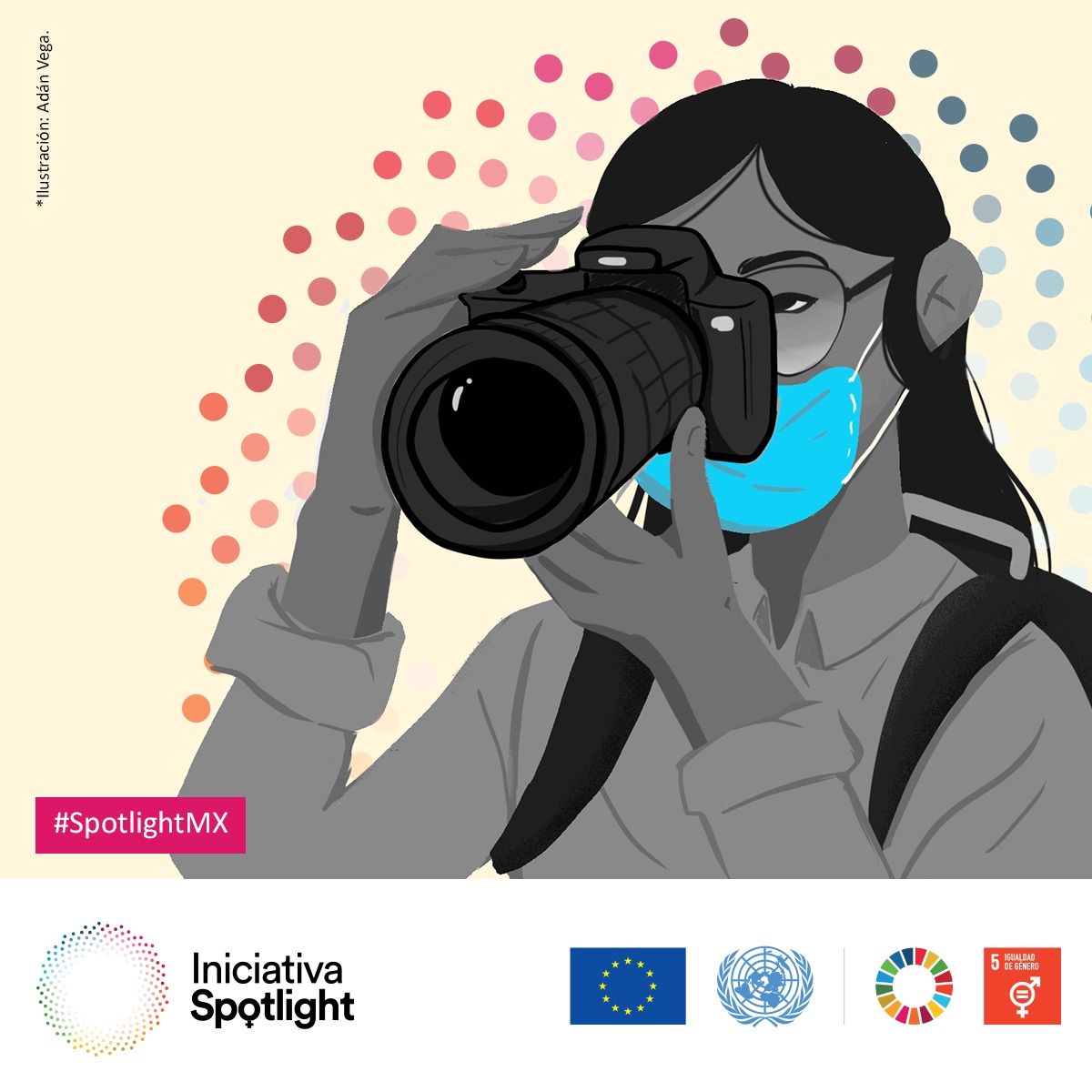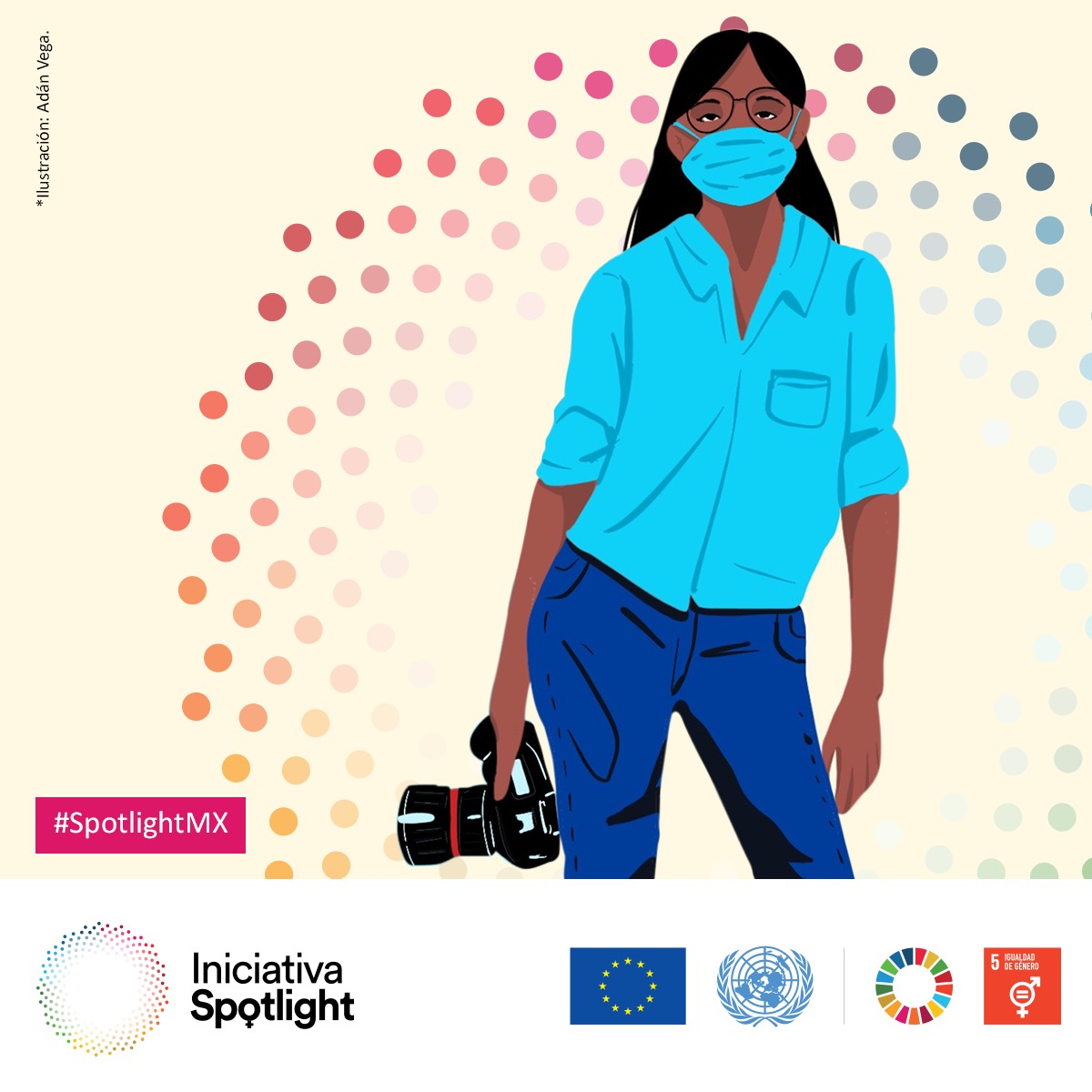Heroines, Women in the context of COVID-19: Women in journalism
Fecha:

This crisis is a reminder of the essential contribution of women. For this reason, as part of the work of UN Women in the framework of the UN Initiative "Spotlight in Mexico" - supported by the European Union in coordination with the Government of Mexico-, and with the aim of making the role of women visible in the context of COVID-19 and its contribution to Mexican society, we share the stories of heroine women in between of the pandemic.
Recognizing the impact of COVID-19 on women and girls, and ensuring an effective response that addresses their needs and guarantees their rights is central to strengthening prevention, response, and recovery efforts.
Jessica Natividad Torres Barrera is a photographer in Chilpancingo. Since March, before leaving home to photograph the pandemic, not only does she review her own security protocols due to the context of violence in Guerrero, but also the current contingency forces her to wear a mask and plastic gloves, carry a disinfecting liquid made by herself and, as always, her camera.
She does graphic journalism for the newspaper El Sur, in Guerrero, and she is the only woman among the four photojournalists working for the newspaper. She only takes one day off a week and the rest of the time she works without a schedule. These days, her field of action are the Raymundo Abarca Alarcón General Hospital; a clinic of the Mexican Institute of Social Security (IMSS); another of the Institute of Security and Social Services for State Workers (ISSSTE); and private institutions.

It is one of these working days of hers. We walk together and take pictures. She confesses that she is distressed by not knowing if she is doing what is necessary to take care of herself: "In the end, you should not be just another figure, you should not become the article yourself, but make the article," she says.
In the context that Jessica and hundreds of women journalists who are also on the front line of the response are facing, greater physical and emotional costs are to be assumed. For this reason, UN Women has published a series of briefs and infographics on the impact of COVID-19 on women and the need to respond accordingly. It is crucial to involve women and ensure a gender perspective in response teams and working groups on the national, regional, and global levels.
Despite the risks, the photojournalist knows her job: she has to be on the street to tell what is happening in the health centers and to denounce their shortcomings. Sometimes, between trips, she hears "Oye cómo va", by Carlos Santana, and for a moment she forgets about the epidemic. It is one of her coping methods, she says, as we say goodbye so that she can continue her daily tour around hospitals.
Taken from the original text by Scarlett Arias.